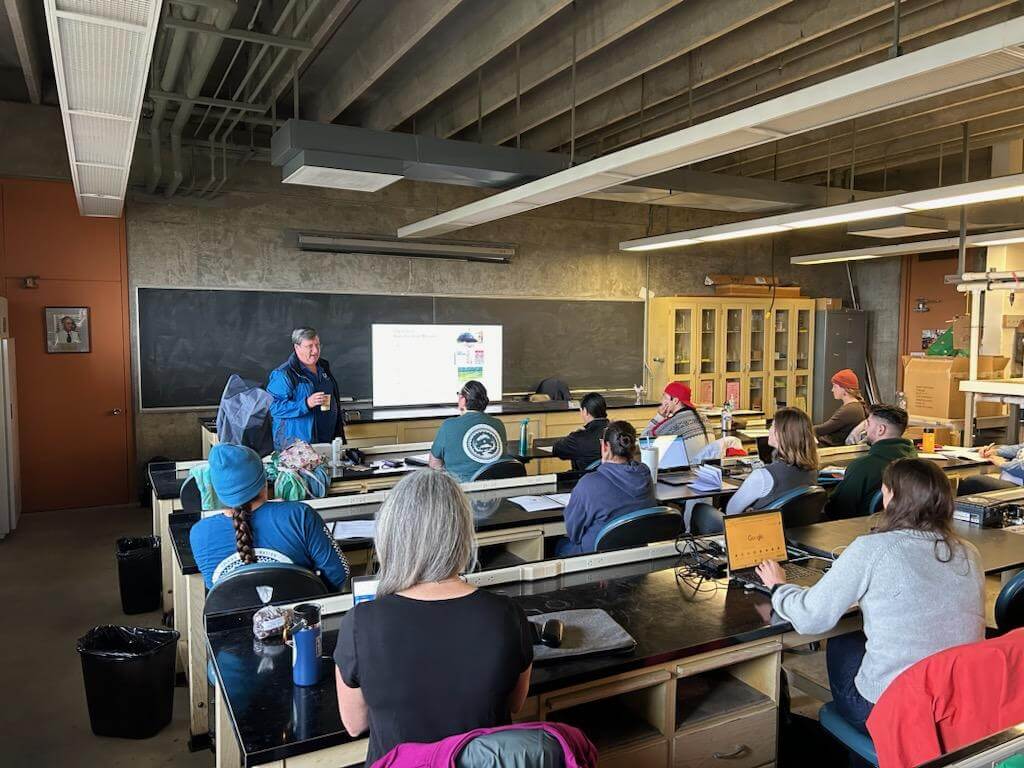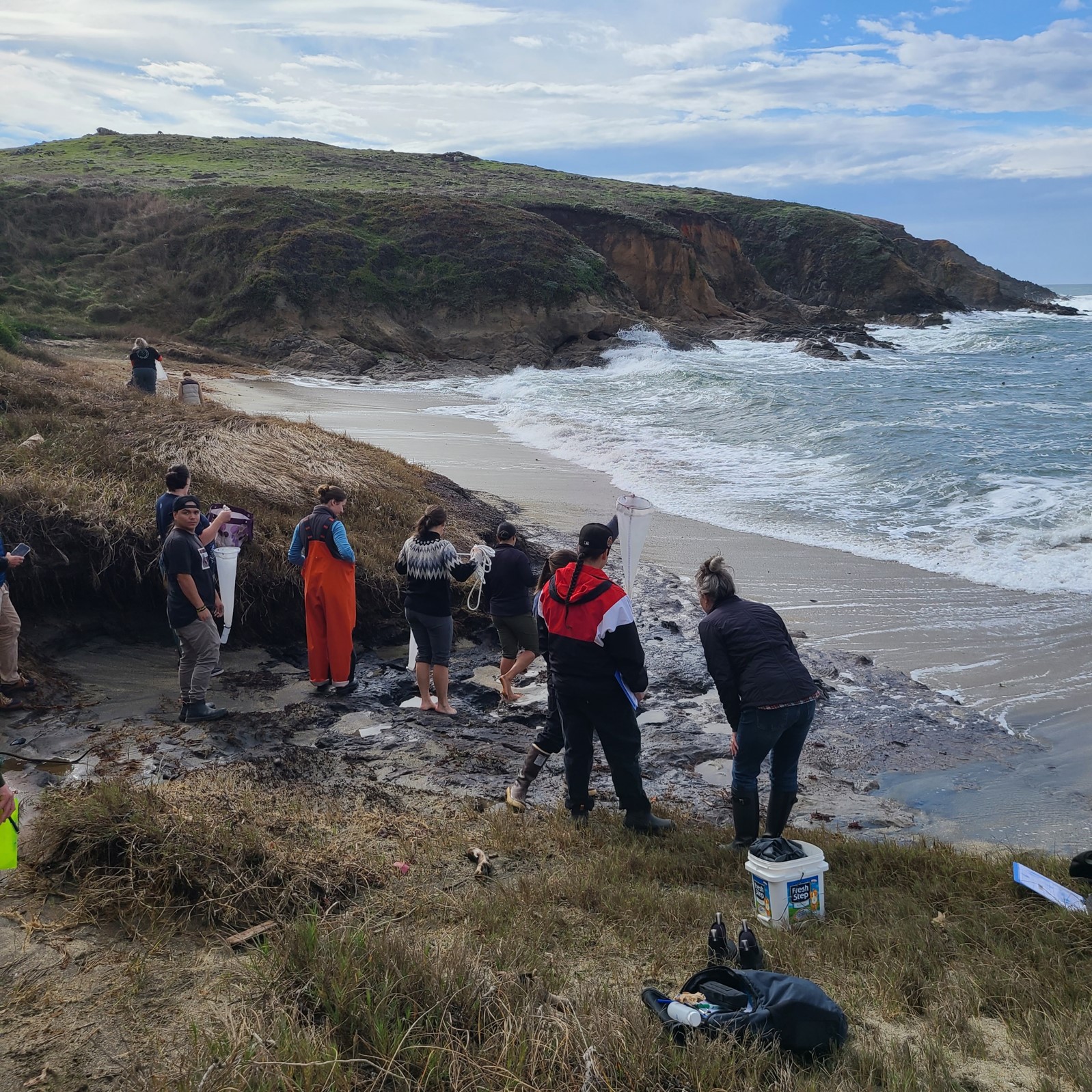Shellfish are often the lifeway for tribes along the U.S. West Coast who rely on indigenous fisheries for subsistence. However, the expanding range of harmful algal blooms (HABs) in the region threatens to contaminate shellfish and poison local communities. NCCOS engages with tribal nations both locally and through regional partnerships to design workshops specific to community needs for toxin detection to reduce HAB-related health threats.

Following the COVID pandemic webinar series on “Managing HABs in Tribal Waters”, one of the participants asked NCCOS to develop a citizen science program for the Tribal Marine Stewards Network (TMSN), tailored to their specific need to help protect tribal members who subsistence-harvest shellfish. After a two year listening process, NCCOS scientists shared methods for phytoplankton monitoring coupled with toxin detection to reduce the risk of marine biotoxins to the health of the tribal members. A two day in-person workshop was held in October 2023 with hands-on experience in sampling phytoplankton along the Bodega Bay at the Bodega Bay Marine Laboratory.
NCCOS scientists from the Phytoplankton Monitoring Network collaborated with Ocean and Earth Environmental Services to host the phytoplankton and toxin monitoring workshop for environmental specialists of the TMSN alliance of California tribal nations who are working collaboratively to protect and restore coastal and marine ecosystems. The Network is a coalition of sovereign nations including the Tolowa Dee-ni’ Nation, Kashia Band of Pomo Indians, Resighini Rancheria, and Amah Mutsun Tribal Band. Members of this network are working together to support co-management of their ancestral coast and ocean territories and to develop tribally driven management programs guided by Native Science and Indigenous Traditional Knowledge. The network aims to return management of ocean and coastal territories to California tribes resulting in healthy and viable communities and ecosystems for future generations.

NCCOS will next transfer techniques and resources obtained during the workshop presentations to additional tribal members. This information will help support the program’s goal of having two operational toxin testing laboratories to test both subsistence harvested shellfish and culturally important marine resources.
The National Phytoplankton Monitoring Network is a community-based network of volunteers monitoring marine phytoplankton and HABs. The network recognizes the interrelationships between humans and coastal ecosystems while providing volunteer citizen scientists with meaningful opportunities for hands-on science engagement. This new partnership with the TMSN is another example of implementing tribal, co-developed programs such as the existing partnerships with the Southeast Alaska Tribal Ocean Research, Chugach Regional Resources Commission, First National Health Authority, and Norton Sound Health Corporation.
